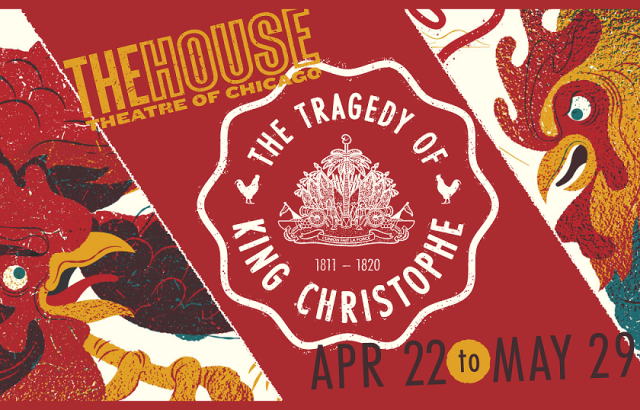
The name in the title might lead us to anticipate a historical drama recounting the short (barely fifteen years) reign of Henri Christophe as monarch over the Caribbean island of Haiti, but the word "tragedy" points us toward the classical heroes of Sophocles and Shakespeare—that is, fundamentally good men inclined to make bad decisions in times of crisis.
This is the lens through which Aime Cesaire views the rival leaders born of the slave uprising of 1791, in which French colonial rule was overthrown. Having no experience of commanding a civilian population, and no model for their new government but that of the recently-deposed European lords, General Petion adopted the ways of France's post-revolution Republic, while General Christophe embarked on an ambitious campaign to elevate his new nation.
The playbill for The Tragedy of King Christophe includes a summary of these events, but playgoers may prefer to set aside scholarly encumbrances and instead revel in the sheer scope of the operatic spectacle that is House Theater's stock-in-trade, facilitated by the Chopin's expansive 1920s-vintage auditorium, allowing for Michelle Lilly's palaces of tropical splendor with floors that slide forth like hidden drawers to focus our attention center stage, Josh Schmidt and Ricky Harris' score of recorded and live-generated music blending European and African arrangements and Sadira Muhammad's narrative-propelling dance and movement choreography (as when Christophe, an avowed Catholic, envisions the vodou deity Baron Samedi, come to announce his imminent doom).
Despite the employment of multiple dramaturgs, linguistic consultants and dialect instructors, the exposed brick walls make for acoustical distortion further blurring the creole-accented patois spoken for most of the performance, but the regal bearing of William Anthony Sebastian Rose II, as the villain whose bloody road to his passion-on-the-cross death is paved with good intentions, cannot help but remind us of other misguided men whose ruin lay in their acquisition of too much power.
